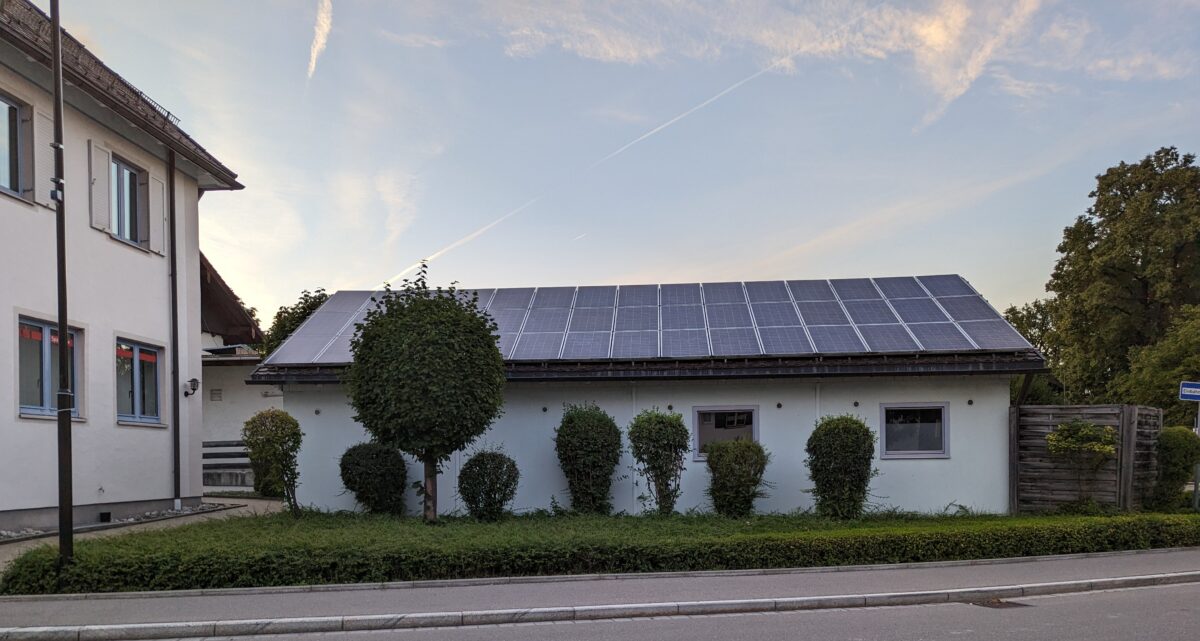Scientists at the RWTH Aachen University have analyzed the influence that the political measures adopted by the German government to combat rising energy prices in recent years have had on residential PV system profitability and have concluded that price breaks on electricity gas do not “reverse” the economical advantage of deploying a solar array.
The researchers analyzed, in particular, the measures taken by the German authorities after the beginning of the COVID-19 crisis and those following the outbreak of the war in Ukraine. Their analysis focused on the possible savings achieved by PV investments made for single-family homes (SFH) during the period.
“For yearly overall system costs, we consider annualized investments, fixed operational costs for maintenance, and yearly variable operating costs,” they explained, noting that a wide range of household types were considered. “A three-person household in a building stock constructed between 1979 and 1990 functions as a reference throughout the results analysis.”
The analysis showed that, from 2020 to 2021, the first factor decreasing PV system savings was the planned progressive reduction of feed-in tariffs. Then in 2022, although the energy crisis triggered by the war in Ukraine led to high electricity prices, savings were further reduced for those who decided to install a PV system due to higher panel prices.
“The decreasing trend reverses for all households in 2023 although investment costs remain on a high level,” the group stated. “The increase can be explained with higher electricity prices and the VAT tax exemption for PV from 2023 on that is put into place by the German government. In addition, the elimination of the law that limits PV grid feed-in to 70% of the nominal power capacity increases feed-in profits.”
The research team highlighted that, from 2019 to 2022, the average daily price on the intraday electricity market climbed from €62.7 ($69.8)/MWh to €322/MW. As a result, the German government introduced a series of energy price breaks. In 2023, for example, it set fixed prices of €0.40/kWh for electricity and €0.12/kWh for NG for 80% of the yearly demand taking the previous year.
The analysis showed PV installations were economically beneficial during the analyzed period.
It also showed that the number of residents is crucial to determining the savings achieved by a PV system owner. For example, a two-person household has €59–123 less annual savings than a 3-person household, while a four-person household has higher savings than a 3-person household by €65–135.
The researchers also found that, although installing a battery could make PV system owners more independent from the grid and less vulnerable to sudden price hikes, the profitability of solar-plus-storage solutions remains so far limited, according to the researchers.
“As a future outlook, the projection for 2030 indicates that a 9.4 kWh HSS in combination with solar PV is expected to be always less economically attractive than the fossil standard household,” they further explained. “Although investment costs for HSS can be expected to substantially decrease until 2030, electricity prices are projected to decrease as well.”
The analysis also indicated that investing in the combination of PV with a battery and a heat pump is economically less attractive than investing in a heat pump alone, although the hybridization of the three technologies is defined as a “feasible” solution to reduce grid dependence. “Nevertheless, for the typical three-person household investing in solar PV and an air-source heat pump economically remains highly beneficial with savings of €1,028 in 2023.”
Their findings were introduced in the study “Quantifying benefits of renewable investments for German residential Prosumers in times of volatile energy markets,” published in nature communications.
“Overall, the results indicate that the picture will substantially change by 2030,” the academics concluded. “The cost savings and emission reductions with PV systems are projected to decrease with progressing decarbonization of the public electricity grid. Therefore, a reevaluation of remuneration mechanisms should be carefully considered in the coming years when aiming for steady growth rates of residential solar PV.”
This content is protected by copyright and may not be reused. If you want to cooperate with us and would like to reuse some of our content, please contact: editors@pv-magazine.com.




By submitting this form you agree to pv magazine using your data for the purposes of publishing your comment.
Your personal data will only be disclosed or otherwise transmitted to third parties for the purposes of spam filtering or if this is necessary for technical maintenance of the website. Any other transfer to third parties will not take place unless this is justified on the basis of applicable data protection regulations or if pv magazine is legally obliged to do so.
You may revoke this consent at any time with effect for the future, in which case your personal data will be deleted immediately. Otherwise, your data will be deleted if pv magazine has processed your request or the purpose of data storage is fulfilled.
Further information on data privacy can be found in our Data Protection Policy.